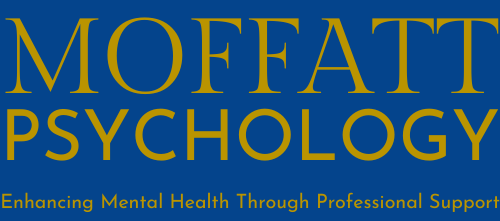Life has a knack for throwing unexpected challenges our way. Sometimes, these challenges manifest in ways that disrupt our ability to function effectively in daily activities. For many adults, Attention Deficit Hyperactivity Disorder (ADHD) is one such challenge that often goes undiagnosed and untreated for years. Recognising the possibility of ADHD and deciding to undergo an assessment is a significant and commendable first step towards better understanding and managing your mental health. At Moffatt Psychology, we are committed to providing high-quality psychological assessments and therapy to support you on this journey. In this post, we will guide you through the process of preparing for an adult ADHD assessment.

Understanding ADHD in Adults
ADHD is commonly associated with children, but it is a condition that can persist into adulthood, affecting various aspects of daily life. Adults with ADHD may struggle with managing time, staying organised, sustaining attention, and controlling impulses. These difficulties can impact work performance, relationships, and overall quality of life.
Common symptoms of adult ADHD include:
- Inattention: Difficulty paying attention, frequent distractions, trouble organising tasks, and forgetfulness.
- Hyperactivity: Restlessness, difficulty sitting still, and a constant need to move.
- Impulsivity: Acting without thinking, interrupting conversations, and difficulty waiting for one’s turn.
Why Seek an Adult ADHD Assessment?
Accurate diagnosis is key to effective management of ADHD. Many adults may have adapted to their symptoms without realising that their challenges have a clinical basis. An assessment by a qualified psychologist can provide you with clarity, validation, and the opportunity to access appropriate treatments and coping strategies.
Steps to Prepare for an Adult ADHD Assessment
- Self-Reflection and Observation Begin by reflecting on your symptoms and how they impact your daily life. Make a list of specific behaviours and challenges you’ve experienced. Consider the following:
- When did you first notice these symptoms?
- How do they affect your work, relationships, and personal life?
- Are there specific situations that exacerbate your symptoms?
- Gather Background Information Compile any relevant personal and family medical history. ADHD tends to run in families, so having information about relatives who may have similar challenges can be beneficial. Include:
- History of ADHD or other mental health conditions in the family.
- Your own medical history, including any past diagnoses or treatments.
- Educational history and any difficulties you faced during school.
- Document Your Current Situation Create a snapshot of your current life. This includes:
- Your typical daily routine.
- Work/school responsibilities and challenges.
- Relationship dynamics with family, friends, and colleagues.
- Coping mechanisms you currently use to manage symptoms.
- Seek Input from Others Sometimes, those around you may observe behaviours that you might overlook. Talk to family members, friends, or colleagues who know you well and ask for their observations. Their insights can provide valuable external perspectives that can aid the assessment process.
- Review Previous Assessments and Reports If you have undergone any previous psychological assessments, educational evaluations, or medical examinations related to your symptoms, gather these documents. These reports can provide a historical context that can be valuable during the assessment.
- Prepare for the Appointment Before your appointment at Moffatt Psychology, take some time to:
- Familiarise yourself with the process. Understanding what to expect during the assessment can reduce anxiety.
- Write down any questions or concerns you have about the assessment.
- Ensure you have all necessary documentation and notes ready.
During the Assessment: What to Expect
At Moffatt Psychology, we strive to provide a thorough and compassionate assessment experience. Here’s what you can typically expect during an adult ADHD assessment:
- Initial ConsultationThe process usually begins with an initial consultation, where the psychologist will gather information about your symptoms, medical history, and lifestyle. This conversation sets the foundation for a detailed evaluation.
- Standardised Questionnaires You may be asked to complete several standardised questionnaires and rating scales. These tools help quantify the severity of your symptoms and provide a structured format for comparison against diagnostic criteria.
- Clinical Interview The clinical interview is a comprehensive discussion where the psychologist will delve deeper into your symptoms, experiences, and their impact on your life. This may include:
- Detailed exploration of your developmental history.
- Examination of your attentional, behavioral, and emotional patterns.
- Assessment of co-occurring conditions (e.g., anxiety, depression) that might influence your symptoms.
- Feedback and RecommendationsAfter the assessment, the psychologist will review the findings with you. This feedback session will cover:
- Explanation of your diagnosis (if applicable).
- Discussion of treatment options, which may include medication, therapy, or lifestyle modifications.
- Development of a personalised plan to manage your symptoms and improve your quality of life.
Life After Diagnosis: Next Steps
Receiving an ADHD diagnosis can be a pivotal moment in your mental health journey. Understanding your condition opens the door to effective management strategies and support. Here are some steps to consider post-diagnosis:
- Treatment Options There are several treatment paths available for managing ADHD, including:
- Medication: Stimulants and non-stimulant medications can help regulate brain chemistry and improve focus and impulse control.
- Psychotherapy: Cognitive-behavioral therapy (CBT) can help you develop coping strategies, manage stress, and improve organizational skills.
- Lifestyle Changes: Implementing routines, using planners, and adopting a healthy lifestyle can significantly reduce symptoms.
- Education and Support Educate yourself about ADHD. Understanding the condition will empower you to take control of your symptoms. Consider joining support groups or seeking counselling to connect with others who share similar experiences.
- Workplace Accommodations If your ADHD affects your work performance, consider discussing it with your employer. Reasonable accommodations, such as flexible hours or modified tasks, can create a more supportive work environment.
- Mindfulness and Self-Care Incorporating mindfulness practices, regular exercise, and a balanced diet can have a positive impact on managing ADHD symptoms. Prioritize self-care to maintain overall well-being.
Conclusion
Taking the first step towards an adult ADHD assessment is an empowering decision that can lead to substantial improvements in your quality of life. At Moffatt Psychology, we are dedicated to providing thorough and compassionate care to help you navigate this journey. By preparing effectively for your assessment, you pave the way for a clearer understanding of your symptoms and access to tailored treatment options. Remember, seeking help is a sign of strength, and with the right support, you can thrive and lead a fulfilling life.
For more information or to book an assessment, contact us at Moffatt Psychology. Your mental health is our priority, and we are here to support you every step of the way.


